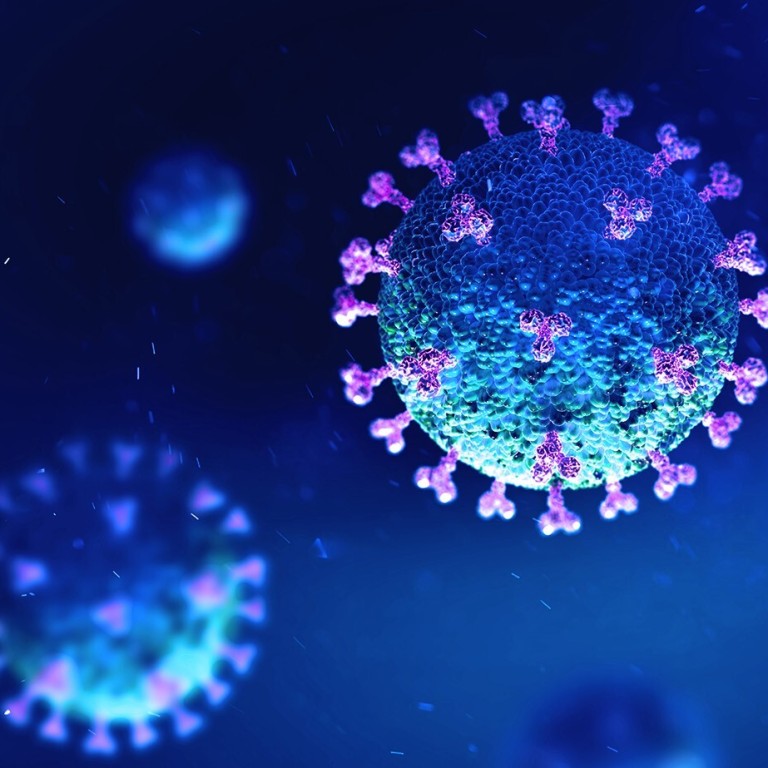
T cells found in healthy people before pandemic may help fight coronavirus, study says
- US researchers find helper and killer immune cells that can target the virus in samples from volunteers taken from 2015 to 2018
- They are likely to have had mild flu-like symptoms in the past caused by other strains, according to the scientists
Alessandro Sette and a team at the La Jolla Institute for Immunology in San Diego, California found both helper and killer T cells – that can target the virus – in healthy volunteers.
But the volunteers could not have been exposed to the new strain, according to the researchers, as their samples were collected between 2015 and 2018 – well before the first cases were reported in central China in December.
“Understanding adaptive immunity to Sars-CoV-2 is important for vaccine development, interpreting coronavirus disease 2019 pathogenesis, and calibration of pandemic control measures,” Sette wrote in a peer-reviewed paper published in the journal Cell on Friday, using the clinical name for the coronavirus.
In the US study, the helper T cells, which identify and coordinate an attack on the virus, were found in over a third of the 68 samples taken before the pandemic began. Four of the volunteers also carried killer T cells that find and destroy infected cells.
Coronavirus may lurk deep in lungs after patients recover, study suggests
The most likely explanation, according to the researchers, was that they might have had mild flu-like symptoms in the past caused by other coronaviruses.
Aside from severe acute respiratory syndrome (Sars) and Middle East respiratory syndrome (Mers), there are many other strains of coronavirus circulating among humans that, in many cases, do not cause severe illness. But they share similar functions and structures, meaning these immune cells could be targeting areas commonly found in all coronaviruses.
“Four human coronaviruses are known causes of seasonal ‘common cold’ upper respiratory tract infections,” the paper said. “This may be reflective of some degree of cross-reactive, pre-existing immunity to Sars-CoV-2 in some, but not all, individuals.”
The potentially beneficial T cells were more abundant in patients who had recently recovered from Covid-19, the disease caused by the virus. The study looked at 10 such patients, with samples taken three weeks after the disease onset. All of them had helper T cells in their blood, while seven carried the killer T cells.
“The immune system sees this virus and mounts an effective immune response,” Sette told Science magazine.
The researchers found that immune cells were generated after infection that could target the virus and remember the attack for an extended period.
That knowledge “will assist vaccine design and evaluation of candidate vaccines”, the paper said.
But the study had limitations, according to a doctor at a hospital in Beijing who has treated Covid-19 patients. “The sample size is too small, and they only looked at people who were not hospitalised because their symptoms were mild,” said the doctor, who declined to be named.
It is not clear whether people carrying these immune cells can avoid serious illness caused by the new coronavirus, and the Beijing doctor said existing scientific evidence did not support policies such as herd immunity – the idea that immunity builds up in a population as more people catch the virus.
Immune response to the new coronavirus could also vary from one person to another, and other studies have had different results to the US research.
In Shanghai, a study by Fudan University researchers, for instance, found very low levels of antibodies that fight against the virus in young people who had recovered. The researchers warned that insufficient antibodies could increase the risk of reinfection.
Coronavirus: stay alert for mystery syndrome in children, says World Health Organisation
There have been cases of patients testing positive after recovering – this happened last week with more than 10 sailors on the coronavirus-hit USS Theodore Roosevelt.
Meanwhile another study, by researchers in Shanghai and New York, found the novel coronavirus could actually attack T cells. The virus was able to enter and shut down the normal function of the immune cells in a test tube experiment. The mechanism remains unclear, but the finding came after other research showed near-complete destruction of immune organs in patients killed by the disease.
In some cases, an overreaction of the body’s immune system has been the cause of death, rather than Covid-19, with critically ill patients experiencing a “cytokine storm”, where the immune system attacks healthy cells.

